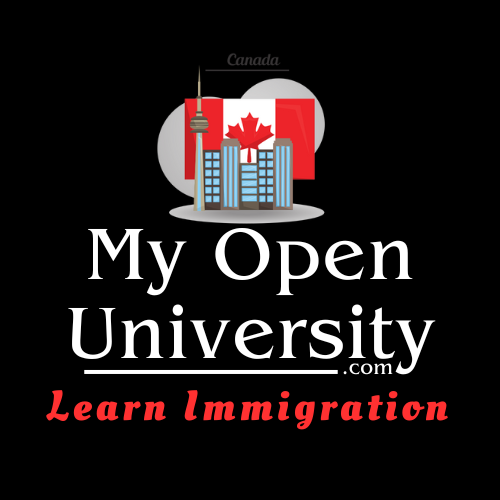
How to achieve My Canadian dreams through various immigration programs and pathways?
Canada, a land of boundless opportunities, beckons millions worldwide, each harboring my Canadian dreams’ of a brighter future. Renowned for its exceptional quality of life, top-notch education, universal healthcare, and embracing diversity, Canadian immigration stands as a beacon of hope and freedom. It is not merely a destination; My Canadian Dreams are a promise of a better tomorrow
Canada takes pride in being one of the most immigrant-friendly nations globally, offering diverse immigration avenues to skilled workers, students, entrepreneurs, investors, refugees, and families. Here, immigrants are not just economic contributors; they are integral members of our rich cultural tapestry.
However, the journey to Canadian shores is no cakewalk. It demands meticulous planning, unwavering determination, and an unyielding spirit. Immigrants face hurdles like language barriers, adapting to new cultures, job market challenges, and the isolation that often accompanies relocation.
Navigating the complicated Canadian immigration process adds to the complexity. Eligibility criteria, document submissions, health checks, security clearances, fees, and processing times can be bewildering. Seeking guidance from immigration consultants or lawyers becomes imperative to enhance the odds of success.
Yet, amid these challenges lie opportunities. A plethora of resources awaits those aspiring to realize their Canadian dream. Online tools and websites provide invaluable information on immigration programs, helping you find the perfect fit. Settlement organizations and community groups stand ready to offer unwavering support, ensuring your seamless integration into Canadian life.
In this blog series, “My Canadian Dreams,” we delve deep into the stories of immigrants who have conquered adversity and embraced Canada as their new home. Their experiences, insights, and tips pave the way for a smoother transition into your Canadian adventure.
Embarking on your Canadian Dreams is akin to chasing a dream. With determination, perseverance, and the right guidance, your Canadian PR process of a new life in Canada can become a vivid reality. Discover the keys to unlock your “Canadian Dreams” and start your journey today.
1. Express Entry: Your Pathway to Canadian Immigration
Express Entry is Canada’s main system for managing applications for permanent residence from skilled workers. It allows eligible candidates to create an online profile and enter a pool of candidates, where they are ranked according to a points-based system called the Comprehensive Ranking System (CRS). The CRS awards points for factors such as age, education, language ability, work experience, and other criteria. Every few weeks, the government issues invitations to apply (ITAs) for permanent residence to the highest-ranked candidates in the pool. Candidates who receive an ITA have 60 days to submit a complete application for permanent residence. Express Entry covers three federal economic immigration programs: the Federal Skilled Worker Program, the Federal Skilled Trades Program, and the Canadian Experience Class. Some provinces and territories also use Express Entry to select candidates for their own provincial nominee programs. Express Entry is a fast and flexible way to immigrate to Canada as a skilled worker.
2. Provincial Nominee Programs (PNP): A Gateway to Canadian Provinces
Provincial Nominee Programs (PNP) are key immigration programs that enable provinces and territories in Canada to nominate individuals who aspire to settle in their respective regions. Each province and territory has its own PNP streams that target specific groups of workers, students, entrepreneurs or investors based on their economic and demographic needs. Some PNP streams are aligned with the federal Express Entry system, which means that candidates who are nominated by a province or territory can receive additional points in their CRS score and increase their chances of getting an ITA for permanent residence. Other PNP streams are not aligned with Express Entry and have their own application process and criteria. PNP is a great option for individuals who have a strong connection or interest in a particular province or territory in Canada.
3. Family Sponsorship: Reuniting with Loved Ones through Pathways to Canada
Family sponsorship is a compassionate program that enables Canadian citizens and permanent residents to reunite with their loved ones in Canada. Through this program, eligible sponsors can bring their spouse, partner, dependent children, parents, grandparents or other relatives to Canada as permanent residents. Family sponsorship applicants must meet certain requirements, such as proving their relationship to the sponsor, passing medical and security checks, and signing an undertaking to support the sponsored person financially for a certain period of time. Sponsors must also meet certain income and eligibility criteria, depending on the type of relationship and the number of people they wish to sponsor. Family sponsorship is one of the ways that Canada supports family reunification and integration of newcomers.
4. Studying in Canada can be your bridge to achieving the Canadian dream of permanent residency
Canada is a popular destination for international students who want to pursue high-quality education in a diverse and welcoming country. Studying in Canada can also be a bridge to permanent residency for many students who wish to stay and work in Canada after graduation. There are several immigration pathways available for international students who have completed their studies in Canada, such as:
- The Post-Graduation Work Permit (PGWP) program, which allows graduates from eligible Canadian institutions to work in Canada for up to three years, depending on the length of their program.
- The Canadian Experience Class (CEC) program, which is part of the Express Entry system and requires at least one year of skilled work experience in Canada within the last three years.
- The Provincial Nominee Programs (PNP), which allow provinces and territories to nominate graduates who have the skills and qualifications needed in their region.
- The Atlantic Immigration Pilot (AIP), which is a partnership between the federal government and the four Atlantic provinces (New Brunswick, Newfoundland and Labrador, Nova Scotia and Prince Edward Island) that aims to attract skilled workers and graduates who want to live and work in Atlantic Canada.
Studying in Canada can open many doors for international students who want to build their careers and lives in Canada.
5. Canadian Work Permits: Employment Opportunities for Immigrants
Canada offers many employment opportunities for immigrants who want to work temporarily or permanently in Canada while settling in this diverse and welcoming country. Depending on the type of job and the duration of stay, immigrants may need a work permit to work legally in Canada. A work permit is an authorization issued by Immigration, Refugees and Citizenship Canada (IRCC) that allows a foreign national to work for a specific employer, occupation and location in Canada for a limited period of time. There are two main types of work permits: employer-specific work permits and open work permits. Employer-specific work permits are tied to a specific employer, occupation and location, and may require a Labour Market Impact Assessment (LMIA) from Employment and Social Development Canada (ESDC) to prove that there is a need for a foreign worker and that no Canadians are available to do the job. Open work permits are not tied to a specific employer, occupation or location, and allow the holder to work for any employer in Canada, subject to some conditions and exclusions. Open work permits are usually issued to certain groups of people, such as spouses or partners of skilled workers or students, refugees, or graduates from eligible Canadian institutions. Work permits can be a stepping stone to permanent residency for many immigrants who want to gain Canadian work experience and qualify for certain immigration programs.
6. Canada’s Immigration Points System: How to Maximize Your Score
Canada’s immigration points system is a way of assessing and ranking the profiles of candidates who want to immigrate to Canada as skilled workers through the Express Entry system. The points system is also known as the Comprehensive Ranking System (CRS), and it awards points for factors such as age, education, language ability, work experience and other criteria. The CRS score is the most influential factor in receiving an invitation to apply (ITA) for permanent residence through Express Entry. Candidates with the highest CRS scores are the most likely to get an ITA in the regular draws that take place every few weeks. Therefore, it is important for candidates to maximize their CRS score as much as possible. There are several ways to improve your CRS score, such as:
- Improving your language ability by taking or retaking a language test and achieving a higher score or learning a second official language (English or French).
- Getting a job offer in Canada that is supported by a positive LMIA or is exempt from the LMIA requirement, which can add 50 or 200 points to your CRS score, depending on the skill level of the job.
- Improving your credentials by completing a higher level of education or getting an Educational Credential Assessment (ECA) for your foreign education, which can increase your points for education and skill transferability factors.
- Applying with your spouse or partner, who can also contribute points to your CRS score based on their own age, education, language ability and work experience.
- Getting a provincial nomination from a province or territory that participates in Express Entry, which can add 600 points to your CRS score and guarantee you an ITA.
By following these tips, you can increase your chances of immigrating to Canada as a skilled worker through Express Entry.
7. Refugee and Asylum Seeker Immigration: Finding Safety in Canada
Canada is a country that respects its international obligations toward those who genuinely need protection from persecution or danger in their home country. Canada offers two programs to help refugees claim protection: the Refugee and Humanitarian Resettlement Program and the In-Canada Asylum Program, both valuable Canadian immigration resources.The Refugee and Humanitarian Resettlement Program is for people who are outside Canada and have been referred by the United Nations Refugee Agency (UNHCR) or another designated organization or sponsored by a private group or organization in Canada. Resettled refugees are screened abroad and undergo security and health checks before being issued a visa to come to Canada as permanent residents. The In-Canada Asylum Program is for people who are already in Canada and fear returning to their home country. They can apply for refugee protection from within Canada by making an asylum claim at a port of entry or at an IRCC office. Asylum seekers must prove that they meet the definition of a refugee according to Canadian and international laws and that they are not excluded for reasons such as criminality or human rights violations. Asylum seekers have the right to due process, including access to legal aid, health care, and social assistance while their claim is being decided. They may also be eligible for a work permit or a study permit during this period. Refugee and asylum-seeker immigration is one of the ways that Canada demonstrates its humanitarian commitment and values.
8. Canadian Citizenship: The Final Step in Your Immigration Journey
Becoming a Canadian citizen is a momentous occasion that marks the final step in the immigration journey. Canadian citizenship comes with many benefits, such as the right to vote, run for office, hold a Canadian passport, travel freely within Canada and abroad, and access certain jobs that require high-level security clearance. It also comes with responsibilities, such as obeying Canadian laws, paying taxes, serving on a jury if called upon, and respecting the rights and freedoms of others. To become a Canadian citizen, you must meet certain eligibility criteria, such as:
- Having permanent resident status in Canada
- Having lived in Canada for at least three out of the last five years
- Having filed your income taxes for at least three out of the last five years
- Having adequate knowledge of English or French
9. Immigration Consultants: Navigating the Application Process
Immigration consultants are invaluable professionals who can assist you in navigating the often intricate and bewildering Canadian immigration application process. They offer essential services that can significantly improve your chances of a successful application. Here’s how immigration consultants can be of assistance:
- Program Assessment: They can evaluate your profile and suggest the most suitable immigration program based on your unique circumstances and objectives.
- Application Preparation: Consultants can help you prepare and submit your application, ensuring it’s complete, accurate, and complies with immigration authorities’ standards and deadlines.
- Communication: They serve as intermediaries with immigration authorities, providing you with regular updates on your application’s status and addressing any requests for additional information.
- Interview Preparation: Immigration consultants can help you get ready for interviews, tests, or other application-related requirements.
- Post-Arrival Support: They can assist you in post-arrival tasks such as finding accommodation, enrolling in healthcare, applying for a social insurance number, or opening a bank account.
Immigration consultants operate under the strict regulations of the Immigration Consultants of Canada Regulatory Council (ICCRC) to ensure they adhere to ethical and professional standards. To learn more about immigration consultants and how to engage their services, visit our dedicated page.
10. Immigration Challenges: Overcoming Obstacles To Achieve Canadian Dreams
While immigrating to Canada can be a profoundly enriching experience, it may also present various challenges that can impact your settlement and success in your new home. Here are some common challenges and strategies to overcome them:
- Language Barriers: If English or French isn’t your first language, improving your language skills through classes, practice, and online resources can help you overcome communication difficulties.
- Cultural Differences: To navigate cultural variations effectively, educate yourself about Canadian culture, history, laws, and customs, attend cultural events or workshops, and engage in open conversations with Canadians. Respect and celebrate the diversity that Canada embraces.
- Employment Hurdles: Facing obstacles in the job market due to foreign credentials or lack of Canadian experience can be challenging. To address this, consider credential recognition, gaining local experience through volunteering or internships, professional assistance from employment agencies, networking, or further education.
- Social Isolation: Combat loneliness by joining social groups or clubs, participating in community activities, connecting with fellow immigrants, or seeking mental health support if needed. Building a support network can alleviate feelings of isolation.
Immigrating to Canada can indeed be a significant undertaking, but by tackling these challenges with determination and seeking support, when necessary, you can pave the way for a successful transition into your new life in Canada.
For more information on Canadian immigration and opportunities, visit the official Canada Immigration website at Canada.ca. You can also explore additional insights and videos on immigration through Guru Immigration for a deeper understanding of your Canadian dreams










